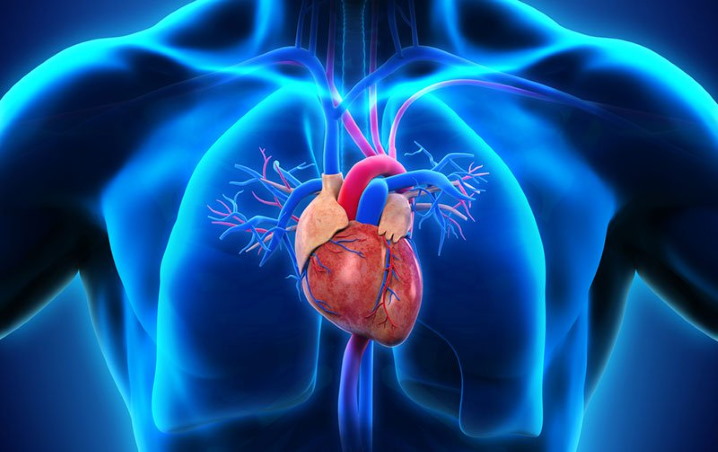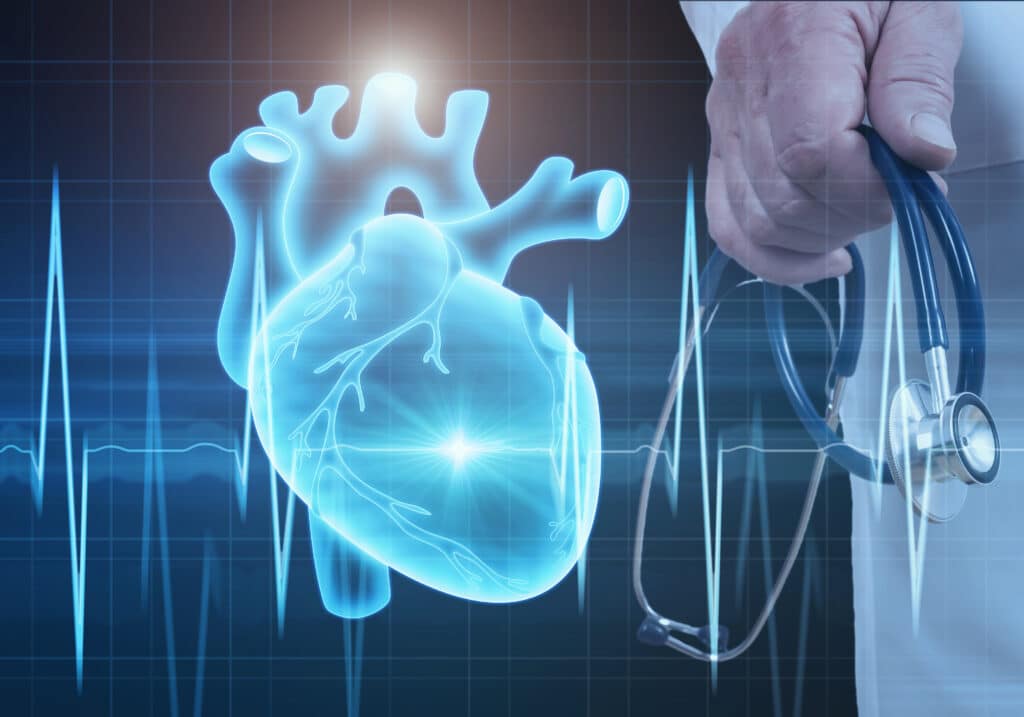Tackling hypertension head-on with modern Cardiology approaches
Tackling hypertension head-on with modern Cardiology approaches
Blog Article
Comprehending the Value of Cardiology in Modern Medical Care Providers
Cardiology plays a critical role in modern healthcare, particularly as heart disease continues to be the leading cause of mortality worldwide. Advancements in diagnostics and treatment have transformed patient treatment, making it possible for earlier treatments and boosted end results. Moreover, the shift towards preventive cardiology empowers people to handle their health and wellness proactively. As technology continues to advance, the assimilation of ingenious services may further redefine cardiology's effect on public health and wellness, triggering a closer exam of arising patterns and their implications.
The Frequency of Cardiovascular Disease and Its Effect on Public Health
Although heart condition stays the leading cause of fatality worldwide, its impact expands far past private patients to influence public health and wellness systems and economic situations. The high prevalence of heart problem places a significant stress on medical care resources, demanding increased financing for treatment, rehab, and avoidance programs. Public health campaigns must attend to threat elements such as excessive weight, smoking, and inactive way of livings, which contribute significantly to the climbing occurrence of heart conditions.Moreover, the economic concern linked with heart disease is enormous, including not just straight medical costs however additionally indirect expenditures associated with lost efficiency and early death. Areas encounter challenges in managing these expenses, commonly bring about disparities in healthcare gain access to and results. As the populace ages and lifestyle-related dangers remain to intensify, the seriousness for effective cardiology interventions becomes critical. As a result, dealing with heart illness is not just a matter of private health and wellness however likewise a vital public health and wellness concern.
Developments in Cardiac Diagnostics and Imaging Techniques
Recent advancements in heart diagnostics and imaging strategies have actually transformed the field of cardiology, boosting the capacity to find and keep an eye on cardiovascular disease. Techniques such as heart MRI, CT angiography, and echocardiography have become significantly innovative, offering detailed photos of heart structures and features. These techniques permit the very early identification of problems like coronary artery illness, heart failure, and valvular disorders.Moreover, advancements in non-invasive diagnostics, such as wearable modern technology and remote tracking tools, have empowered individuals and health care providers. These devices help with real-time monitoring of heart rhythms and other crucial indications, leading to prompt interventions. Furthermore, artificial intelligence is being incorporated right into imaging evaluation, improving accuracy and efficiency in diagnosis.
Innovations in Treatment Choices for Heart Issues
Current improvements in cardiology have actually brought about substantial technologies in treatment choices for heart problems. These consist of sophisticated medical techniques that improve procedural outcomes and arising medicines that supply new opportunities for therapy. As the field advances, these developments play an essential role in enhancing person treatment and results.
Advanced Surgical Techniques
Technologies in surgical methods have changed the landscape of cardiology, providing brand-new wish for patients with heart conditions. Minimally intrusive treatments, such as catheter-based treatments, have actually considerably minimized recuperation times and hospital stays. Techniques like robotic-assisted surgical treatment improve accuracy, permitting doctors to browse intricate anatomical frameworks with better precision. Advancements in imaging technology facilitate real-time visualization during treatments, enhancing results. Transcatheter aortic valve replacement (TAVR) exemplifies a breakthrough in treating aortic constriction, enabling valve substitute without open-heart surgical procedure. In addition, hybrid techniques that integrate catheter-based and surgical techniques supply tailored solutions for various heart problems. These sophisticated surgical strategies not only enhance person safety and security however also increase therapy options, highlighting the important function of innovation in modern-day cardiology methods.
Emerging Therapies and drugs
As the landscape of cardiology remains to progress, arising treatments and medicines play a crucial role in boosting treatment alternatives for heart disease. Innovations such as unique anticoagulants and advanced lipid-lowering agents have actually transformed the monitoring of cardio diseases, considerably decreasing person morbidity and death. Additionally, the growth of gene treatments and regenerative medication provides encouraging opportunities for dealing with conditions formerly considered incurable. Medical tests are constantly disclosing the efficacy of these therapies, pushing the limits of typical treatments. The integration of digital health and wellness modern technologies facilitates customized medicine, enabling for customized therapy strategies based on hereditary and lifestyle elements. Collectively, these improvements highlight the vibrant nature of cardiology, boosting person outcomes and redefining standards of care in contemporary health care.
The Function of Preventive Cardiology in Individual Treatment
Precautionary cardiology plays an essential role in patient care by focusing on the identification of threat variables that add to heart problem. Through lifestyle modification strategies and very early discovery techniques, doctor can successfully minimize the occurrence of cardiovascular events - Cardiology care. This positive method not only improves client outcomes yet additionally advertises long-lasting health
Risk Factor Recognition
While heart diseases continue to be a leading root cause of morbidity and death worldwide, effective risk variable recognition functions as a cornerstone of precautionary cardiology. Determining risk variables such as high blood pressure, household, diabetes, and hyperlipidemia background is necessary for very early intervention. Medical care experts make use of different screening techniques to evaluate these factors, permitting customized safety nets. Additionally, recognizing a client's way of living choices, such as smoking cigarettes and physical inactivity, better notifies threat assessments. This detailed examination makes it possible for clinicians to establish personalized treatment strategies aimed at mitigating dangers. By focusing on risk aspect recognition, healthcare systems can enhance individual end results and reduce the overall problem of heart diseases, eventually adding to improved public health and wellness approaches and source allotment.
Way Of Life Alteration Strategies
A wide range of research studies highlights the essential role of way of life adjustment methods in lowering cardio disease risk. These techniques include nutritional modifications, increased physical activity, cigarette smoking cessation, and weight monitoring. By taking on a heart-healthy diet rich in fruits, vegetables, whole grains, and lean proteins, individuals you can try this out can reduce cholesterol degrees and blood stress. Regular exercise strengthens the heart and enhances general cardiovascular health and wellness. In addition, stopping cigarette smoking considerably minimizes the danger of heart problem and enhances recovery rates for those with status quo. Weight administration additionally contributes to cardiovascular health by mitigating various other danger aspects such as diabetic issues and hypertension. Implementing these way of living transforms not only promotes specific wellness however also works as a keystone of precautionary cardiology in client treatment.
Very Early Detection Strategies
Way of life adjustments greatly add to minimizing heart disease dangers, but they are most reliable when combined with early discovery methods. Preventive cardiology highlights the importance of recognizing prospective heart issues prior to they escalate right into major problems. Techniques such as high blood pressure tracking, cholesterol testing, and advanced imaging modern technologies like echocardiograms play vital roles in examining cardiovascular wellness. Biomarkers and genetic screening additionally improve the accuracy of early discovery, allowing for tailored preventative techniques. Normal cardiac danger evaluations equip doctor to interfere proactively, potentially stopping heart strikes and strokes (Cardiology). By incorporating these early detection methods right into regular treatment, clients can take advantage of prompt lifestyle interventions and targeted treatments, inevitably enhancing outcomes and boosting lifestyle
Integrating Technology Into Cardiology Practices
As advancements in innovation remain to reshape numerous fields, the combination of cutting-edge tools and systems right into cardiology practices has actually come to be essential for improving client care and outcomes. Telemedicine platforms permit cardiologists to monitor individuals remotely, improving accessibility to care while reducing the concern on health care centers. Wearable gadgets, such as smartwatches, make it possible for constant heart rate surveillance, notifying both patients and physicians to prospective problems in real-time. In addition, fabricated intelligence (AI) is being utilized to analyze large quantities of heart information, helping in very early medical diagnosis and individualized therapy strategies. Advanced imaging strategies, consisting of 3D echocardiography, boost visualization of heart structures, causing a lot more precise treatments. Digital wellness records (EHRs) enhance person details administration, making sure that cardiologists have instant accessibility to critical information. Together, these technical innovations are transforming cardiology, promoting positive monitoring and enhanced health outcomes for people with cardiovascular conditions.
The Value of Person Education And Learning and Interaction
Client education and learning and engagement play a critical function in the administration of cardiovascular health. By gearing up individuals with expertise about their problems, therapy alternatives, and way of life adjustments, doctor encourage individuals to take an energetic role in their care. This proactive approach can result in enhanced adherence to suggested medications, nutritional changes, and workout regimens, eventually minimizing the threat of complications.Engagement also promotes a solid patient-provider relationship, encouraging open communication and count on. When people feel notified and involved, they are most likely to voice concerns and ask concerns, which can bring about far better medical end results. In addition, educational sources, such as workshops or electronic systems, can improve understanding and promote self-management techniques. On the whole, prioritizing client education and learning and engagement is crucial for boosting cardio health, enhancing lifestyle, and minimizing health care prices related to cardiovascular diseases.
Future Trends in Cardiology and Their Prospective Impact

Often Asked Concerns
What Way Of Life Changes Can Reduce Cardiovascular Disease Threat?
The existing concern addresses way of living adjustments that can considerably decrease cardiovascular disease danger. Cardiologist near me. Taking on a well balanced diet regimen, participating in routine exercise, keeping a healthy weight, taking care of stress and anxiety, and avoiding cigarette can especially boost cardio wellness
How Can I Identify Very Early Signs of Heart Troubles?
Acknowledging very early indications of heart troubles entails monitoring signs and symptoms such as breast pain, shortness of breath, exhaustion, and irregular heartbeat. Timely awareness of these indicators can motivate needed medical examination and treatment for much better end results.
What Are the Differences In Between Cardiologists and Cardiac Surgeons?
The distinctions in between cardiologists and cardiac doctors depend on their functions; cardiologists primarily manage and identify heart conditions via non-invasive methods, while cardiac doctors perform operations to correct structural heart problems. Each plays an essential, distinct duty.

How Frequently Should I Get My Heart Wellness Checked?
The regularity of heart health and wellness checks varies based upon private risk variables. Normally, adults should undertake examinations every one to 2 years, while those with status quo might require more constant evaluations as advised by medical care experts.
What Role Does Genes Play in Heart Problem Threat?
Genetics greatly affects heart problem danger, with domestic patterns suggesting acquired conditions. Specific genes can incline individuals to high blood pressure, cholesterol problems, and various other cardiovascular troubles, highlighting the value of genetic testing in evaluating heart wellness. Heart disease stays the leading cause of death around the world, its effect expands far past individual people to affect public wellness systems and economies. Public health and wellness campaigns should resolve risk aspects such as excessive weight, smoking, and inactive way of livings, which add considerably to the rising occurrence of heart conditions.Moreover, the economic worry associated with heart illness is tremendous, encompassing not only direct clinical expenses yet additionally indirect expenses associated to shed performance and important source early death. Preventive cardiology plays a vital duty in person care by concentrating on the recognition of threat factors that contribute to heart disease. Man-made knowledge (AI) and maker understanding are enhancing diagnostics and patient monitoring, enabling early discovery of heart illness. The differences between cardiologists and cardiac cosmetic surgeons lie in their functions; cardiologists mostly handle and identify heart problems via non-invasive approaches, while heart doctors execute medical treatments to remedy structural heart problems.
Report this page